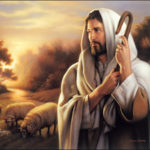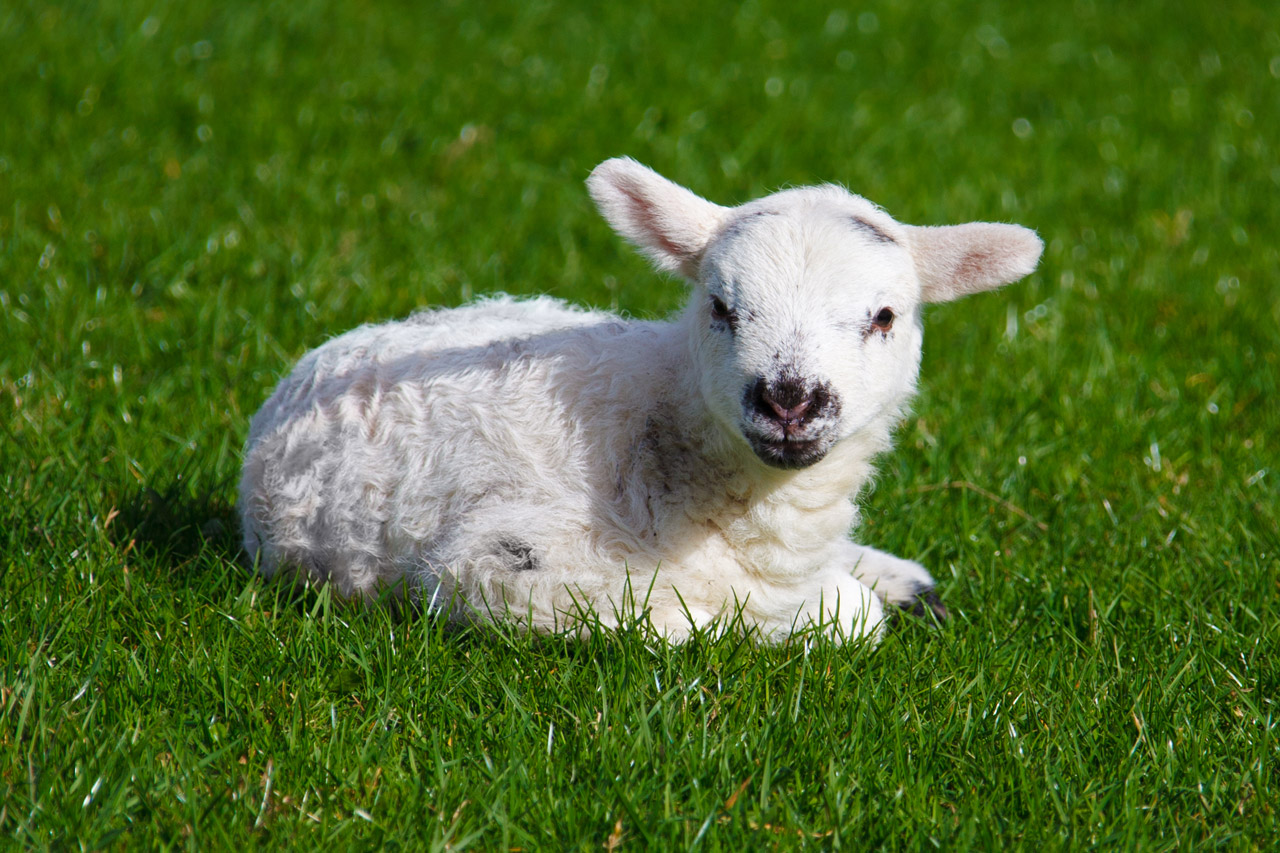 The 23rd Psalm is a useful outline of the things we can learn about how God wants pastors to treat His people. He is the Shepherd, and we are His under-shepherds. The pastor who can grasp the leading of the Lord though this simple Psalm, will gain the knowledge which God wants applied to His church. Those pastor will reap the benefits of obedience, and bring in more members as a result.
The 23rd Psalm is a useful outline of the things we can learn about how God wants pastors to treat His people. He is the Shepherd, and we are His under-shepherds. The pastor who can grasp the leading of the Lord though this simple Psalm, will gain the knowledge which God wants applied to His church. Those pastor will reap the benefits of obedience, and bring in more members as a result.
- The LORD is my shepherd.
Sheep are able to feel safe when they know that the shepherd will do the right things, which will be to be benefit, as well as his. His actions will make sure that they do not lack in those things they really need. In the church this translates to mean that the pastor makes sure he leads, not just orders, his people in what should be done.
- I shall not want.
He makes sure that their needs (spiritually and as a congregation) are met. If he cannot accomplish this by himself, he trains others (sheepdogs), or brings in others (people who can help train sheepdogs), to help him with this obligation. In this manner he makes sure his congregation gets what they truly need to grow as Christians.
- He maketh me to lie down in green pastures.
 Green pastures are those whose grass have grown back after the last time the sheep were there to eat. If the pastor is not careful, the sheep will eat grass in an area until they ruin the pasture. In the church this translates into our understanding that pastors are to be conscious of moving his people from one point of Christian growth to the next. If people stay too long in one level, they become stagnant and frustrated. As people mature and grow, they “move on to green pastures” and are able to “lie down,” that is remain there for a while, until they are ready to move on to the next.
Green pastures are those whose grass have grown back after the last time the sheep were there to eat. If the pastor is not careful, the sheep will eat grass in an area until they ruin the pasture. In the church this translates into our understanding that pastors are to be conscious of moving his people from one point of Christian growth to the next. If people stay too long in one level, they become stagnant and frustrated. As people mature and grow, they “move on to green pastures” and are able to “lie down,” that is remain there for a while, until they are ready to move on to the next.
- He leadeth me beside the still waters.
Sheep will not drink from moving waters. It is not clear why they won’t. But the analogy is that moving waters represent unclear and questionable instruction and preaching from the pastor. If the preaching and leading is unclear, confused, and open to question, then the listeners will also be unclear as to what is expected of them. They will then not “drink” (accept and apply) what they are hearing. The Word of God is our “living water,” we need to drink from it. But people who are distracted by the berating’s, admonishments, and constant exhortations of their pastors will tend to refuse to “drink.”
5. He restoreth my soul.
As with humans, sheep are “restored” in strength and health by drinking water. The pastor who is careful to provided healthy drinking water (i.e. unbiased Word of God, clear teaching from the Word, and leading by personal example). A pastor who “walks along” with his parishioners helps to restore them.
- He leadeth me in the paths of righteousness for his name’s sake.
Leading is the act of doing something first, and then allowing others to copy our example. If a pastor wants his people doing something he must be doing the same himself. If a pastor does something one once, or only a few times, or just keeps telling people what he did before, then he is showing them that they should do the same. As Paul said, “Imitate me, as I imitate Christ.” The pastor must have a life style (the way a person lives everyday of their lives), that demonstrates that Jesus is Lord, so that the congregation will have an example of how they should also live.
- Yea, though I walk through the valley of the shadow of death, I will fear no evil: for thou art with me.
 All Christians will deal with sin in their lives. Just like sheep, they will often not know what they are doing, and sometimes do those things on purpose. Either people feel safe coming to our churches, even though they know they sinned. Or they are afraid that once they show up, someone will confront and attacked them for the sin. Do the people of your church already know that they are safe from attack, or do they tend to avoid the attack they believe is already coming?
All Christians will deal with sin in their lives. Just like sheep, they will often not know what they are doing, and sometimes do those things on purpose. Either people feel safe coming to our churches, even though they know they sinned. Or they are afraid that once they show up, someone will confront and attacked them for the sin. Do the people of your church already know that they are safe from attack, or do they tend to avoid the attack they believe is already coming?
Our churches are to be places of safety for the sinner, to come and turn that sin over to Christ. People should be confronted about their sins, but not beaten up for them.
- Thy rod and thy staff they comfort me.
When sheep strayed, sometimes the shepherd had to break the leg of the lamb, and then carry them until the leg healed. A church without discipline is destined to become a safe-house for those who would continue to do wrong. On the other hand, a church that is too legalistic and harsh in their discipline, is destined to remain small in numbers, and eventually die out. Christians need discipline, and sometimes they need to suffer the consequences of the disciplinary process of the church. Consequences help us to recognize the dangers of our actions. Pastors are to impose the consequences of church discipline for the purpose of maintaining a safe environment for the rest of the membership.
- Thou preparest a table before me in the presence of mine enemies.
The good shepherd makes sure that the sheep have enough to eat, drink, and their other needs are met. This is done to the point that the wolves, see that attacking a sheep is not to their benefit. The good shepherd has his sheep dogs alert, keeps his weapons near him, and is always vigilant.
In the church, visitors who may have wrong intentions, should find that the people are so well trained and cared for that they would find it very difficult to try and perpetuate harm to the church membership. People who are happy with their church, and who trust their pastor, are not easily distracted and drawn away from the safety of their home church, and its doctrine.
- Thou anointest my head with oil.
Anointing was the act of identifying a person for a special purpose. It was a way of choosing someone to accomplish something that just not everyone is going to do. There was the sense of purpose in the person’s life. The good pastor develops a clear and achievable vision and mission statement for his congregation. People who understand their church’s vision and mission, and also agree with it, are more motivated to achieve it. It is these people who become the sheep dogs. They will be those that the pastor can depend on.
- My cup runneth over.
Filling up the cup of a guest, was the sign of great respect, in those days. Keeping it filled was a sign of admiration, along with that respect. Making sure it was filled to the point that it would run over, was a sign of love for the person. You just did not want them to run out of the enjoyable drink.
The happier and more satisfied the sheep were, the more wool they gave, the more meat one could get from them, and so on. Happier members will do more, because they are happy members.






